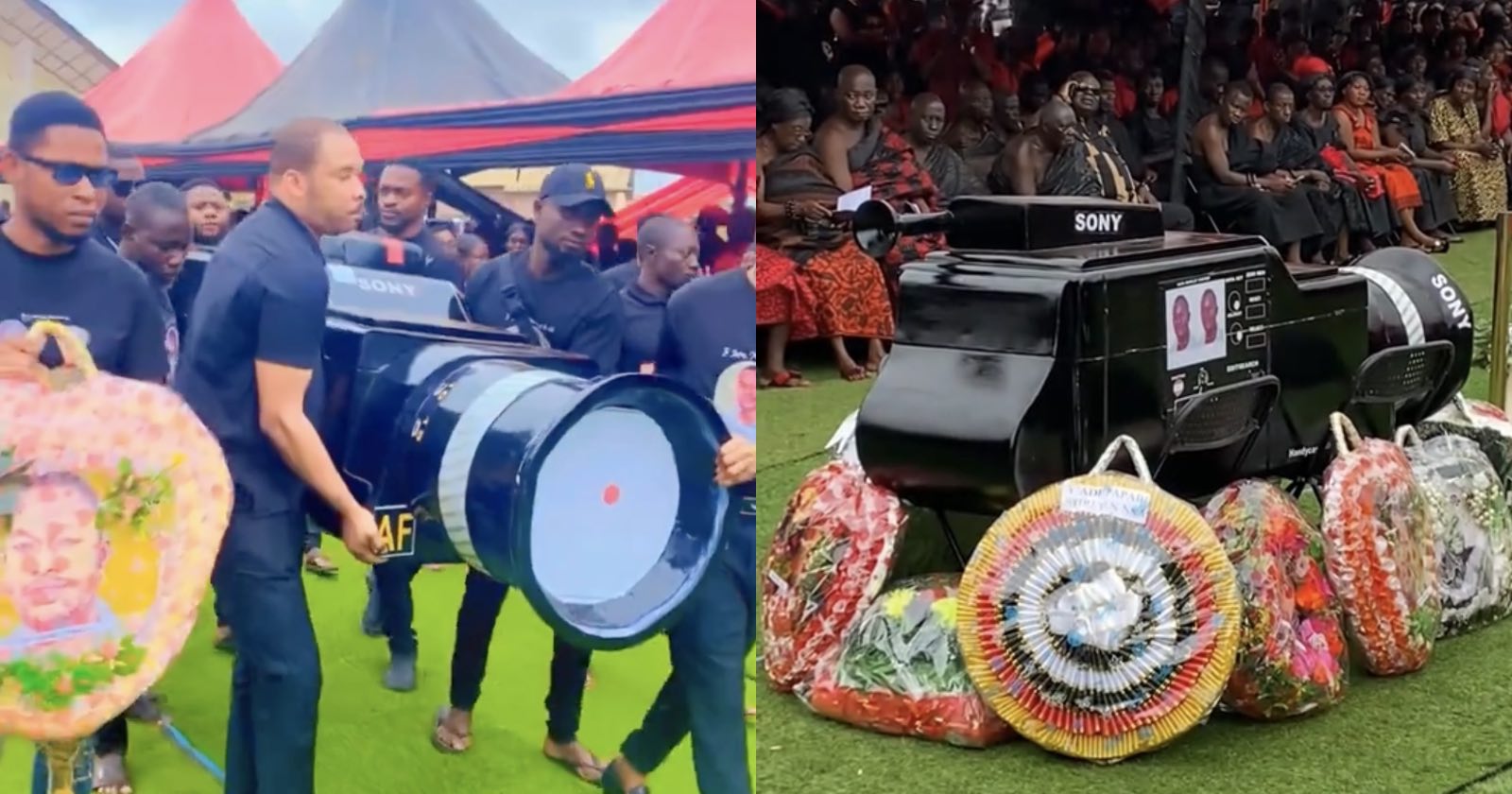Photographer is Laid to Rest in a Sony Camera Coffin

A photographer was laid to rest in a coffin designed to look like a Sony video camera at his funeral in Ghana.
Footage has been circulating online of late photographer and videographer Eric Fosu, also known as Ericus, being laid to rest in a camera-shaped coffin at his funeral in Techiman, Ghana, on July 8.
@team7inks Bra. Yaw 😭😭😭😭😭😭🕊🕊🕊… RiP 🪦..#fyp #foryouu #funerals #ghanatiktok🇬🇭 #techiman #photographer #videographer #rip #kumasi ♬ original sound – cop_techimanarea
In Ghana, coffins are typically crafted to resemble a person’s trade and symbolize the work they’ll continue in the afterlife. Fosu, who worked for the Ghanaian video and photo company 7inks Studios, had his coffin made to look like a Sony camera to represent his passion for photography.
A photographer’s còffin, designed to look like a camera. pic.twitter.com/GtIAFpJFF4
— EDHUB🌍ℹ (@eddie_wrt) July 8, 2025
In the viral footage, pallbearers are seen carrying a camera-shaped coffin, which holds the late photographer, as they make their way to his burial site. The coffin is intricately crafted to look exactly like a real camera, down to the smallest detail.
@team7inks We shall meet again Bra. Yaw.. your insults, advices & laugher will be missed 😭😭😭🕊🕊…. #fyp #foryouu #photographer #fypツ #techiman ♬ funeral song – Original Queen Mina
It features Sony branding, control buttons on the side, a faux focus finder, a red recording light, and lens markings showing focal length and aperture. There are also imitation knobs and a built-in microphone. On one side of Fosu’s coffin, a display screen shows an image of the late photographer Fosu that pays tribute to his life behind the lens.
The Fantasy Coffins of Ghana
In Ghana, funerals are often seen as both a time to mourn and a time to celebrate the deceased. Many communities mark the occasion with extended ceremonies that include music and dancing, sometimes lasting several days. A distinctive part of these traditions is the use of fantasy coffins.
Known locally as abebu adekai (proverbial coffins), these custom coffins have been mainly used by the Ga people, an ethnic group in Ghana, since the 1950s. The coffins are typically shaped to reflect something meaningful about the deceased — such as their job, lifestyle, or character — and are meant to represent what they might continue doing in the afterlife, according to a report by Vice last year.
“So if they were a farmer, the family of the deceased could decide based on which crop he farmed,” Eric Adjenty Anang, a workshop director for Coffins at Kwei Carpentry Workshop in Accra, Ghana, explains to Vice. “If they were making cocoa, the coffin could be a chocolate bar.”
Image credits: Header photos via X/@eddie_wrt (left) and TikTok/@team7inks (right).



